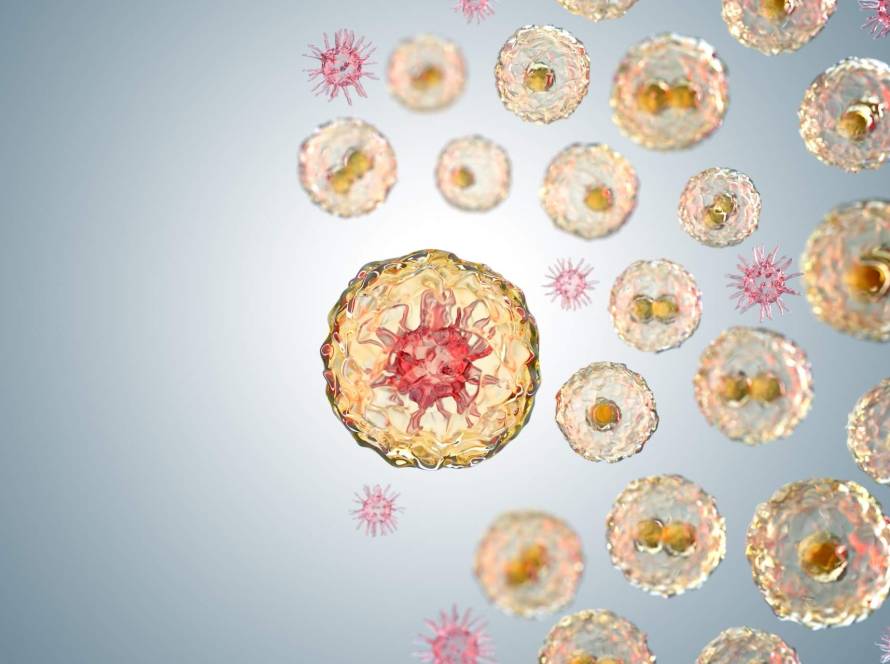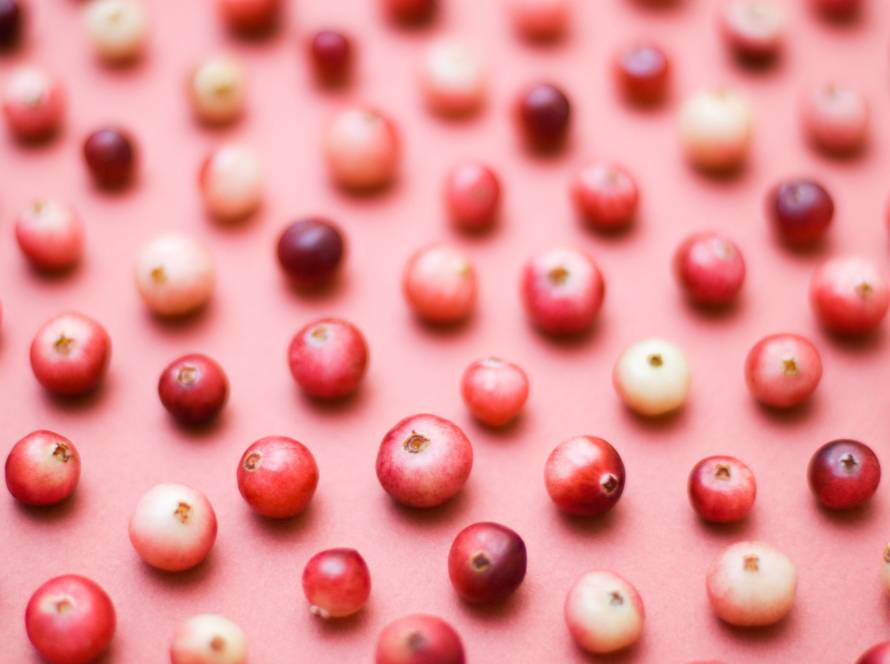The results from clinical studies paint an exciting picture about peptides and their anti-aging properties. Recent findings tell us that peptides boost our body’s essential proteins like collagen and elastin, the ones that naturally decrease as we get older.
Are peptides good for anti-aging? This piece will help to learn about peptides anti-aging capabilities and their proven benefits for skin health. Cover everything from applying them on our skin to taking supplements and understand how these remarkable compounds support our anti-aging goals.
Understanding peptides in anti-aging treatments
Peptides stand out as one of the most promising ingredients in modern anti-aging treatments. These powerful molecules have caught on not just in cosmetics but also in therapeutic applications because of their impressive biological activities.
Definition and simple functions
Peptides are short chains of 2-20 amino acids that serve as the building blocks of proteins vital for skin health. Their smaller size lets them penetrate the skins outer layer instead of sitting on top, which helps them work better.
These molecules act as messengers in the body and signal cells to perform specific functions like building collagen and elastin, proteins that keep skins texture, strength and resilience. The skin becomes less intact when peptide levels drop, which leads to reduced firmness, more wrinkles and less elasticity.
Scientists group peptides into several types based on how they work:
- Signal peptides: talk to skin cells to boost collagen and elastin production;
- Carrier peptides: move important substances like copper and magnesium into cells;
- Neurotransmitter inhibiting peptides: target expression wrinkles by blocking acetylcholine release;
- Enzyme inhibiting peptides: lower activity of enzymes that contribute to skin aging.
Bioactive peptides come in two types: endogenous peptides (naturally released from precursor proteins and secreted from cells) and exogenous peptides (produced through enzymatic hydrolysis or synthesis). Both types are vital foundations of healthy, youthful skin.
Why peptides work against aging signs
Peptides fight aging by tackling multiple aspects of skin aging at once. Our natural production of proteins like collagen drops substantially as we age, which changes how our skin looks and works.
These molecules boost collagen synthesis to create firmer, more youthful skin. Research shows that signal peptides can tell skin cells to make more collagen, which helps smooth fine lines and wrinkles. Peptides also boost DNA repair mechanisms and maintain cellular integrity as we age.
Peptides fight aging through their antioxidant and anti-inflammatory properties too. They protect against cellular damage that speeds up aging by neutralizing free radicals and reducing inflammation. Some peptides boost antioxidant enzyme activity and help the body remove harmful substances like advanced glycation end products (AGEs) better.
Peptides support the skins barrier function by encouraging protective proteins and lipids production. A resilient skin barrier keeps moisture better and fights off environmental damage, both vital for youthful skin.
Topical peptides for skin rejuvenation
Peptides work best in creams and serums as a way to rejuvenate our skin. These powerful molecules are available in topical products and can penetrate the skin barrier because they’re smaller than proteins like collagen.
Choosing effective peptide serums and creams
The ingredient list is our guide to picking the right peptide products. Look for words that end with “peptide”, dipeptide, tripeptide, tetrapeptide, hexapeptide and oligopeptide. We’ll also see common names like palmitoyl and carnosine. The best formulations list peptides near the start of their ingredients, which shows they contain higher amounts.
Different peptides give us specific benefits:
- Signal peptides boost collagen and elastin production;
- Carrier peptides bring minerals needed to heal wounds;
- Enzyme inhibitor peptides stop collagen from breaking down:
- Neuropeptides relax muscle contractions that create wrinkles (like Botox but without needles).
Studies show this peptide can reduce fold depth by 18%, fold thickness by 37% and skin rigidity by 21% after just 28 days.
Application techniques for maximum benefits
Our skin needs to be clean before apply peptide products. Serums work really well because they stay on our skin longer and absorb better. Most experts say we’ll get the best results if we use peptide products twice a day, morning and night.
The way we layer our products makes a big difference. We should start with the thinnest products to get the best results. Putting our peptide serums on before creams or oils. Products we apply first will absorb best, so we should plan our routine based on what matters most to us.
Combining peptides with other skincare ingredients
Peptides work great with other ingredients to fight aging. Niacinamide (vitamin B3) helps peptides by calming our skin and making its barrier stronger. Hyaluronic acid and peptides are a perfect match, we get hydration while the peptides boost collagen production.
Vitamin C can help too if we use it right. Just keep copper peptides away from vitamin C because they might oxidize, use them at different times.
Some ingredients don’t play well with peptides:
- Salicylic acid (BHA) can make peptides less effective;
- Glycolic acid and other AHAs might break down peptides in acidic conditions.
We can get great anti-aging results by picking the right peptide products, applying them correctly and using them with other good ingredients.
Oral peptide supplements for comprehensive aging support
Oral peptide supplements do more than just work on the surface, they fight aging from the inside out. These supplements deliver benefits throughout our body, not just our skin.
Collagen peptides for skin, hair and joints
Collagen peptides are the most researched oral peptide supplements for anti-aging benefits. Our digestive system can absorb these small pieces of animal collagen and send them throughout our body. Research shows multiple benefits:
Studies prove these supplements work. A meta analysis of 19 studies with over 1,000 participants showed that collagen supplements substantially improved skin hydration, elasticity and density. One study found that taking 1,000 mg of collagen peptides daily for 12 weeks gave participants more elastic, hydrated skin with fewer wrinkles.
Types I and III collagen help rejuvenate skin best, while type II targets joint health specifically. These supplements also help:
- Build stronger bones by increasing bone mineral density, which helps postmenopausal women;
- Grow thicker hair that covers more of our scalp;
- Strengthen nails and make them grow faster, in just 4 weeks;
- Reduce joint pain from osteoarthritis and improve function, though it takes 3-5 months.
Bioavailability and absorption factors
The benefits are clear, but getting peptides into oour system isn’t easy. In fact, most peptides have poor oral bioavailability, typically less than 1%. Our body creates several obstacles:
Stomach acids can break down peptides before they reach our intestines. Peptides must also get through the gastrointestinal wall, which blocks larger molecules. Our liver processes these peptides even after absorption.
Scientists have found ways to boost absorption. Compounds like salcaprozate sodium (SNAC) and fatty acids (C8 and C10) help substantially more peptides get into our system. These compounds:
- Create openings between intestinal cells;
- Help more peptides pass through cell walls;
- Protect peptides by forming protective shields;
- Stop digestive enzymes from breaking down peptides.
Advanced peptide therapies
People looking for stronger anti-aging results can try advanced peptide therapies as alternatives to creams and supplements. These clinical grade treatments work better because they deliver peptides directly to target tissues.
Peptide injections and their benefits
Peptide injections provide a direct way to get these powerful compounds into the body. Subcutaneous administration helps peptides skip digestive processes that usually reduce how well oral supplements work. This makes a big difference since most peptides have poor oral bioavailability.
These injectable peptides offer several benefits:
- They boost human growth hormone (HGH) production to build muscle mass, increase bone density and reduce body fat;
- They improve collagen production to reduce wrinkles and fine lines;
- They lower inflammation throughout the body;
- They boost immune response with antimicrobial properties.
Microneedling with peptides
The combination of microneedling with peptides creates better results than either treatment alone. This method uses fine needles to create tiny punctures in the skin before applying peptides.
Microchannels help peptides reach deeper into the skin compared to regular application. This cooperative approach works well, microneedling triggers natural collagen production while helping peptides absorb better.
Research shows this combination helps reduce fine lines, wrinkles and scarring while making skin texture and elasticity better. The copper tripeptide GHK-Cu found naturally in the human body works with microneedling to rebuild tissue and boost collagen formation.
Professional treatments vs. at home options
Professional peptide treatments usually give better results than at-home options. Dermatologists use medical grade devices that reach deeper skin layers beyond what home devices can do.
Clinics provide sterile environments and personalized treatment plans based on specific skin concerns. Professionals can mix peptide treatments with other methods like laser therapy to get better results.
At home options are convenient but limited. They’re more available but give subtle improvements. Home microneedling devices use shorter needles (0.25-0.5mm vs. 0.5-2.5mm professional) and can’t deliver peptides as deeply.
The decision between professional and at home treatments depends on our budget, desired results and safety priorities.
Creating an effective anti-aging routine with peptides
Let see how to build a peptide routine that goes beyond basic product application to deliver the best anti-aging results.
Morning vs. evening applications
The best skin improvements come from using peptide products twice daily, once in the morning and once at night. Our morning application shields skin from environmental stressors and provides daytime protection. Night application helps lock in hydration while we sleep..
A well laid out application sequence makes peptides work better. Start with a gentle face wash, then apply peptide serums before our heavier moisturizers. Our morning routine should always end with SPF, this protection helps us retain the peptide benefits.
Complementary ingredients and products
Peptides create powerful cooperative effects when paired with specific ingredients:
- Hyaluronic acid: boosts hydration, which makes peptides work better;
- Niacinamide: soothes skin and strengthens the barrier among other peptides;
- Retinol: fights aging signs while peptides calm potential dryness;
- Vitamin C: adds brightness while peptides firm the skin.
Some combinations need careful attention. Avoid mixing peptides with salicylic acid or alpha hydroxy acids. These acids can break down peptide bonds and reduce their effectiveness. Copper peptides don’t work well with vitamin C in the same routine due to pH differences.
Lifestyle factors that boost peptide effectiveness
Our daily habits shape how well peptides perform. Good nutrition plays a vital role, eat protein rich foods that supply amino acids, which peptides need as building blocks. Foods rich in collagen like bone broth and gelatin support natural peptide production.
Sleep quality matters because our body produces growth hormone releasing peptides naturally at night. Exercise improves blood flow, which helps peptides reach target tissues more effectively.
Water intake optimizes metabolic processes, including peptide synthesis. Stress management through meditation or deep breathing helps too, high cortisol from chronic stress can slow down peptide production.
The right mix of timing, compatible ingredients and healthy habits will increase our peptide benefits and give us better anti-aging results.
Choosing the right peptide forms and delivery methods for our specific needs makes all the difference. Targeted skin concerns respond well to topical peptides. Oral supplements provide broader systemic benefits. More intensive results come from advanced therapies like peptide injections or microneedling when done under proper medical supervision.
Peptides ended up becoming a scientifically backed way to manage aging, particularly when combined with smart lifestyle choices and proper application techniques. Their power to stimulate collagen production, improve cellular repair and support multiple aspects of aging makes them valuable additions to any detailed longevity strategy.


